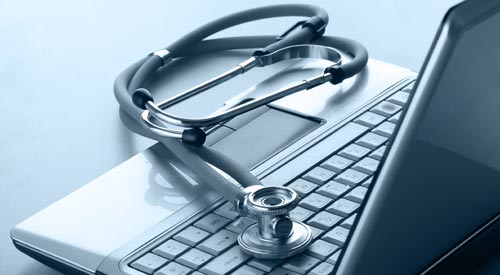State’s All-Payer Model requires non-traditional approaches to care delivery
Healthcare Informatics: Three years ago the State of Maryland launched a bold experiment to improve healthcare. With a waiver from the Centers for Medicare & Medicaid Services, the state converted its hospital payment system from traditional fee-for-service to a global system, in which hospital total revenue for all payers is set at the beginning of the year. The Maryland Health Care Commission (MHCC) recognizes that if the state is to succeed with the All-Payer Model, providers need to consider adopting non-traditional approaches to care delivery.
In June 2015 the MHCC awarded telehealth grants to three organizations to assess the impact of remote patient monitoring (RPM) on reducing hospital encounters, improving patient care, and decreasing healthcare costs. The three projects explored the effect of RPM on patient populations with varying health conditions and in different settings, according to MHCC, which recently released a report on those pilot projects.
Share
Top Stories
- VA Says Its Renewed Infrastructure Review Will Focus on Building First
- Veterans Affairs Unveils Draft for $60B T4NG 2 Vehicle
- VA is Working to Add New Features to its Health and Benefits App
- Homelessness Among Veterans Has Been Cut in Half since 2010, VA Says
- Leidos partners with Accenture to deliver CDC cloud modernization
- Top 10 privacy and cybersecurity stories of 2022
- How to Solve the Healthcare Data Conundrum
- Top 10 privacy and cybersecurity stories of 2022
- Cardinal Health CIO Michelle Greene on simplifying transformation
- Get a handle on insider threats with industry intel
- Defense Department Health Plan Cuts Its Pharmacy Network by Nearly 15,000 Outlets
- Senator questions Mark Zuckerberg over Meta's healthcare data collection policies
- ‘I Can Go Anywhere’: How Service Dogs Help Veterans With PTSD
- Cutting Thousands of Medical Personnel Won’t Reduce Access to Care, Army Surgeon General Says
- VA ‘Moving Toward Full Compliance’ With Geospatial Data Law, Watchdog Finds
- NIH Injects $130M to Provide Quality Tools, Data for AI in Medicine
i360Gov Newsletters
The most significant government policy, business, and technology news and analysis delivered to your inbox.
Subscribe NowTrending
- Leidos partners with Accenture to deliver CDC cloud modernization
- Cardinal Health CIO Michelle Greene on simplifying transformation
- Army’s New Plan to ‘Transform’ Soldier Health Care with Technology
- VA Systems are Vulnerable to Cyber Intrusions Due to Lack of Effective Oversight, Report Says
- The business value of NLP: 5 success stories
- Defense Department Health Plan Cuts Its Pharmacy Network by Nearly 15,000 Outlets
- VA ‘Moving Toward Full Compliance’ With Geospatial Data Law, Watchdog Finds
- NIH Injects $130M to Provide Quality Tools, Data for AI in Medicine


















